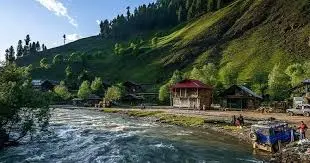Gurez Valley a remote and picturesque region in Jammu and Kashmir, faces significant socio-economic challenges that disproportionately affect women. Traditional norms, geographical isolation and inadequate infrastructure hinder women’s access to education, healthcare and financial independence. Non-Governmental Organizations such as Borderless World Foundation, HELP Foundation and CHINAR International have worked in Gurez to bridge these gaps by advocating for gender equality, offering legal and economic support and facilitating policy changes.
NGOs in Gurez Valley play a crucial role in challenging deeply entrenched patriarchal norms that restrict women’s rights. Many women are unaware of their legal protections due to a lack of education and societal constraints. Organizations like the HELP Foundation have conducted workshops in villages like Kanzalwan and Dawar, educating families about gender rights and the adverse effects of child marriage. In one instance, an early marriage was successfully prevented in the village of Sheikhpora after an NGO intervened by providing the girl with educational support and legal counselling.
Legal awareness remains a challenge for women in Gurez, with many hesitant to report domestic violence and property disputes due to fear of social ostracization. NGOs work actively with local advocates to provide free legal aid and facilitate women in filing complaints. CHINAR International has partnered with local authorities in Gurez to push for better lamentation of domestic violence laws. A recent case in Badugam saw a woman regain her rightful inheritance after an NGO-supported legal battle, setting a precedent for similar cases.
Education remains a critical issue in Gurez, where harsh winters and limited transport prevent many girls from attending school. NGOs have set up community learning centres in villages like Izmarg and Wampora, ensuring girls continue their education year-round. Vocational training programs in tailoring, embroidery, and dairy farming have empowered women in villages such as Markota and Achoora. A self-help group started by trained women in Chorwan is now selling handwoven Pashmina shawls in Srinagar markets, boosting financial independence in the region.
Gurez has limited healthcare facilities, forcing women to travel long distances for maternity care. To address this, NGOs have established mobile health clinics that visit remote villages like Bagtore and Izmarg, providing essential maternal and reproductive health services. In a recent initiative, an NGO-led health camp in Kilshay village helped diagnose and treat multiple cases of anaemia among women, highlighting the importance of nutrition awareness in the region. NGOs also distribute hygiene kits and conduct menstrual health education programs in local schools.
Financial dependency is a significant barrier to women’s empowerment in Gurez. NGOs have introduced microfinance initiatives and self-help groups that enable women to run small businesses. In the village of Purana Tulail, a group of women trained in beekeeping by an NGO is now selling organic honey, providing them with a sustainable income source. Such initiatives boost economic independence and contribute to the valley’s local economy.
Women in Gurez have historically been excluded from governance and decision-making processes. To address this, NGOs have started leadership training programs to encourage women to take up active roles in village councils. A notable success story is a young woman from Dawar who, after attending a leadership workshop, contested and won a seat in the local panchayat, becoming a role model for other women in the valley. Such programs foster long-term political participation and community leadership.
Despite their impact, NGOs in Gurez face significant challenges in their operations.
In conservative households, resistance to new gender roles makes it difficult for NGOs to gain acceptance.
Limited internet connectivity and poor road infrastructure hinder outreach efforts, especially in winter when heavy snowfall isolates villages.
Many NGOs rely on external donors, making sustaining long-term projects in Gurez difficult.
Bureaucratic hurdles and restrictions on NGO operations sometimes slow down the implementation of initiatives.


